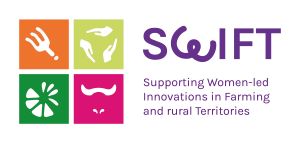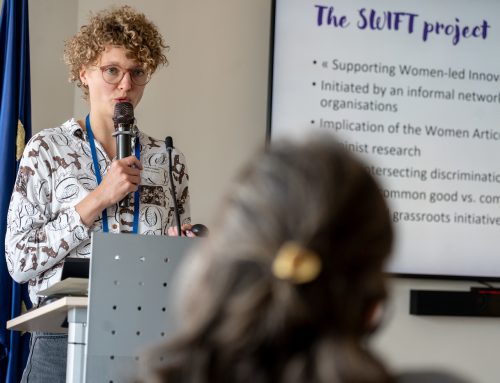The European agricultural sector is marked by high levels of inequality. The agricultural gender gap is at risk of increasing. It is often men who claim the identity of ‘farmer’, despite the significant role women and gender diversities in agriculture play on farms. Further, research shows that conventional farming is strongly identified with rural masculinities. This perception has been accelerating rather than decreasing, since the start of mechanisation. While mechanisation per se does not exclude women from farming, research shows it has pushed women out of the fields. The cultural perception that agriculture is a male industry is difficult to break down.
Research shows that men inherit farming land much more often than women – and this is a trend that persists across Europe, despite the different legal frameworks governing land inheritance. On top of that, there are other barriers to equality: subsidy policies favour larger landholders over small-scale food producers; associations and policy-making entities tend to exclude women/gender diverse persons and agricultural workers who don’t own land; pricing mechanisms and supermarket monopolies reduce bargaining power for farmers. The list can be much longer, and it’s worth mentioning at least another barrier: the absence of agricultural education opportunities in agroecological methods.
Addressing these concerns is urgent. SWIFT, which stands for Supporting Women-Led Innovations in Farming and Rural Territories, is a 4 year funded Horizon Europe project set up with the purpose to advance the position of women and LGBTQI+ persons in farming, and to investigate how agroecological processes can promote gender equality. In SWIFT, we work together with brilliant researchers dealing with rural feminism, NGOs and the women’s and gender diversities articulations of transnational agrarian movements. Women-Led Innovations (WLIs) in agriculture are defined as grassroots innovations built to challenge structural inequalities in agriculture in rural areas. Many of the WLI that are the focus of SWIFT have emerged under the broad umbrella of alternative food networks and have demands connected to the human right to adequate food and to food sovereignty.
Addressing the intersectional experiences of women and different gender identities in agriculture is key to substantially improving gender equality. Through SWIFT, we work to bring up the issue, to open up a policy space for women and non-binary people working in agriculture, overcoming existing obstacles and changing the EU’s approach to agricultural policy, currently based on a view of agriculture as an industrial sector. It’s a huge and ambitious challenge, but it’s really worth the try.





Leave A Comment